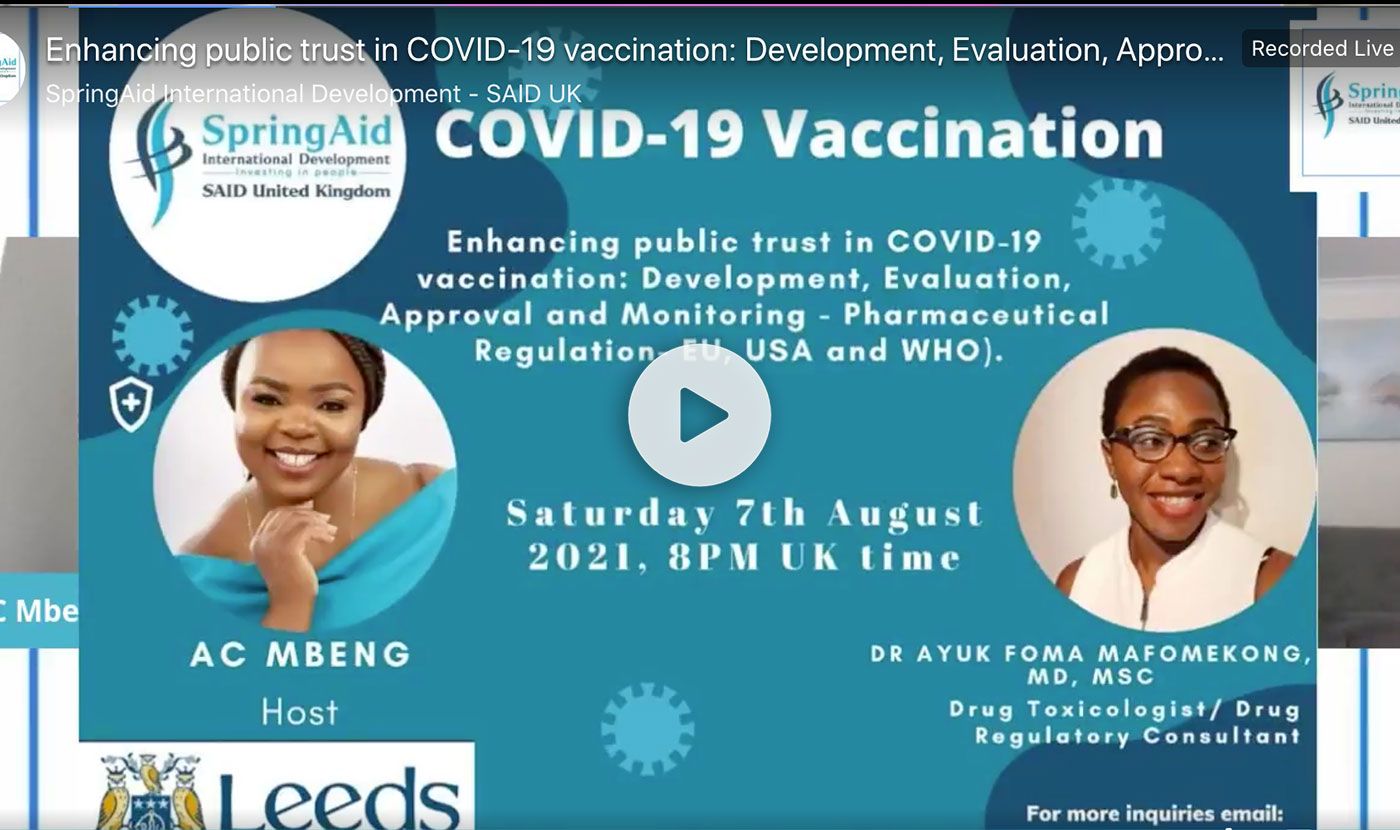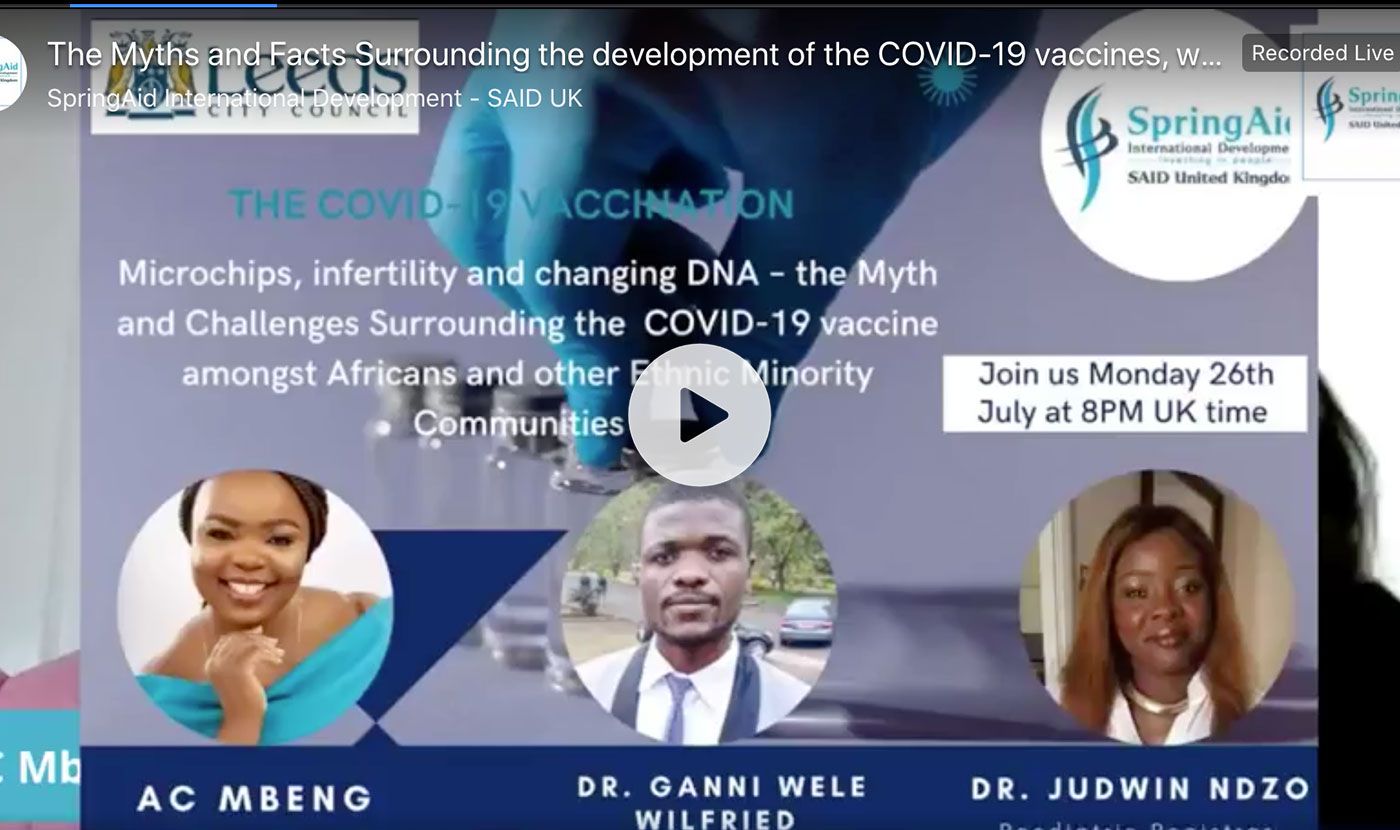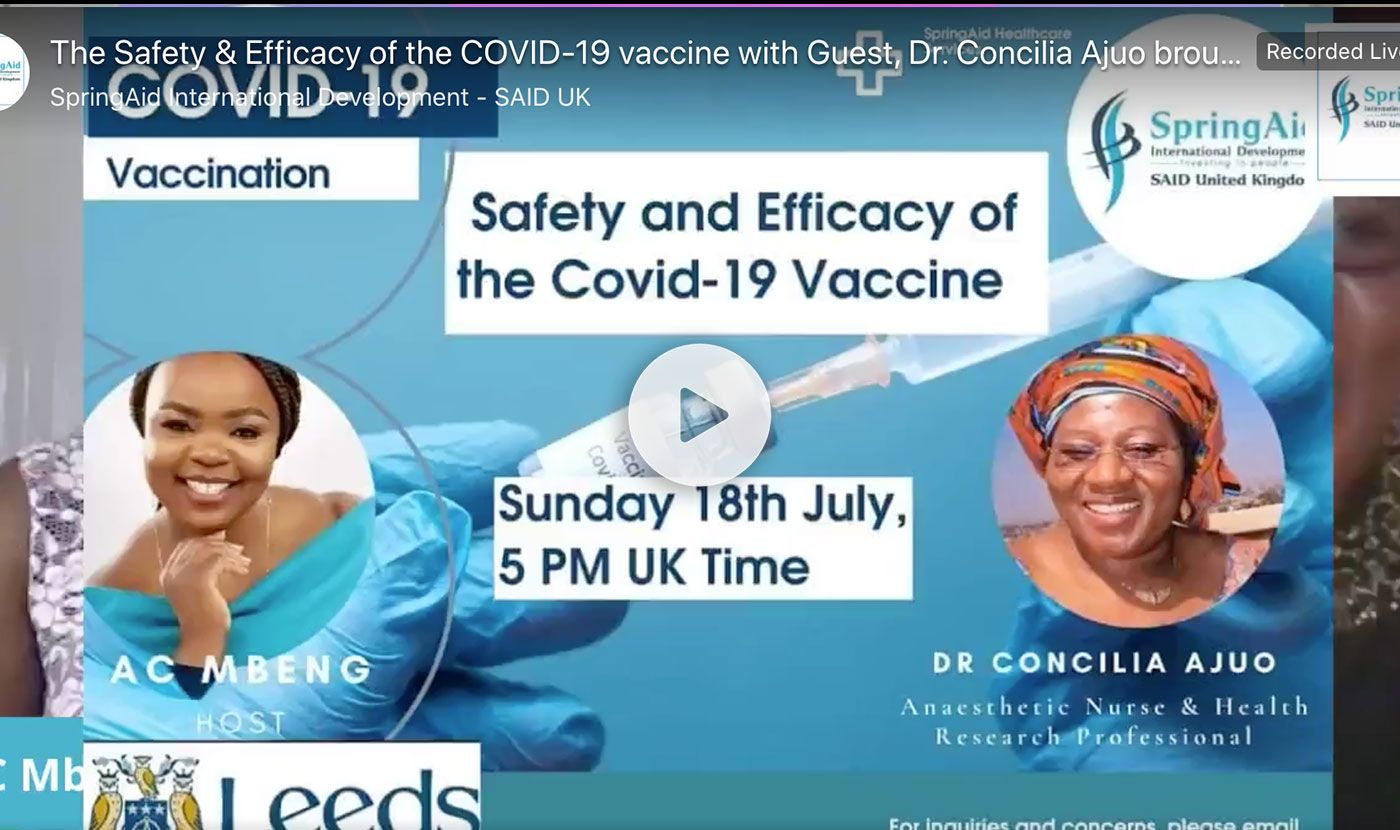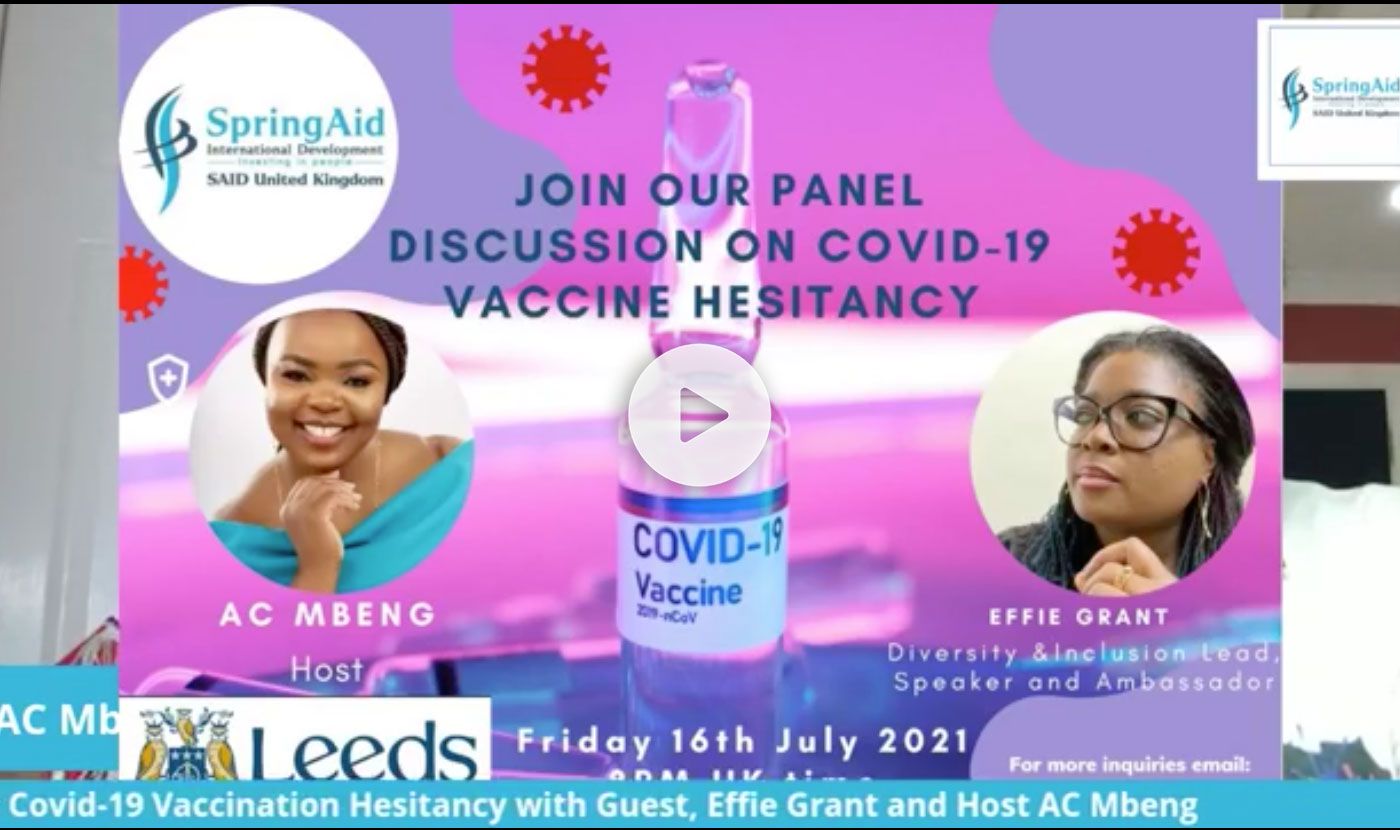Health & Wellbeing Support During COVID-19
We launched a series of Covid-19 vaccine webinars that brought together trusted and credible voices, made up of experts, practitioners and influencers – health professionals, advocates, community leaders, private and public sector organisations representatives and people who have received the covid-19 vaccines.
They came together in a part series panel discussions sharing their personal and professional knowledge and experiences to address vaccine hesitancy, counter false and misleading misinformation and misconceptions and promote a culture of trust in the COVID-19 vaccines safety, efficacy and necessity. They engaged with individuals and the broader community providing them with accurate information about vaccine immunizations and addressed their concerns. We also ran a whatsapp live group Q&A chat service 3 days per week for 4 hours which provided the community a shared platform where they could asks questions in confidence and in return receive up to date and advice, information and guidance about the covid-19 vaccine.
While the rapid development of vaccines against COVID19 is an extraordinary achievement, successfully vaccinating people presents huge challenges especially on aspects of safety and efficiency through to production, distribution, deployment, and importantly, acceptance. Trust in the covid-19 vaccines is vital, but for us, the ability to communicate the benefits of the vaccine; safety and efficacy element was important. The series of Covid-19 vaccine webinars, explored a range of topics, all focused on throwing more light on these elements whilst addressing some of the causal factors of hesitancy such as mistrust, concerns around safety, side effects and future health risks, (mis)information, societal attitudes, and beliefs, and values. Vaccine hesitancy is a dynamic and heterogeneous phenomenon, varying according to context, and to geographic and demographic variables.
Campaigns
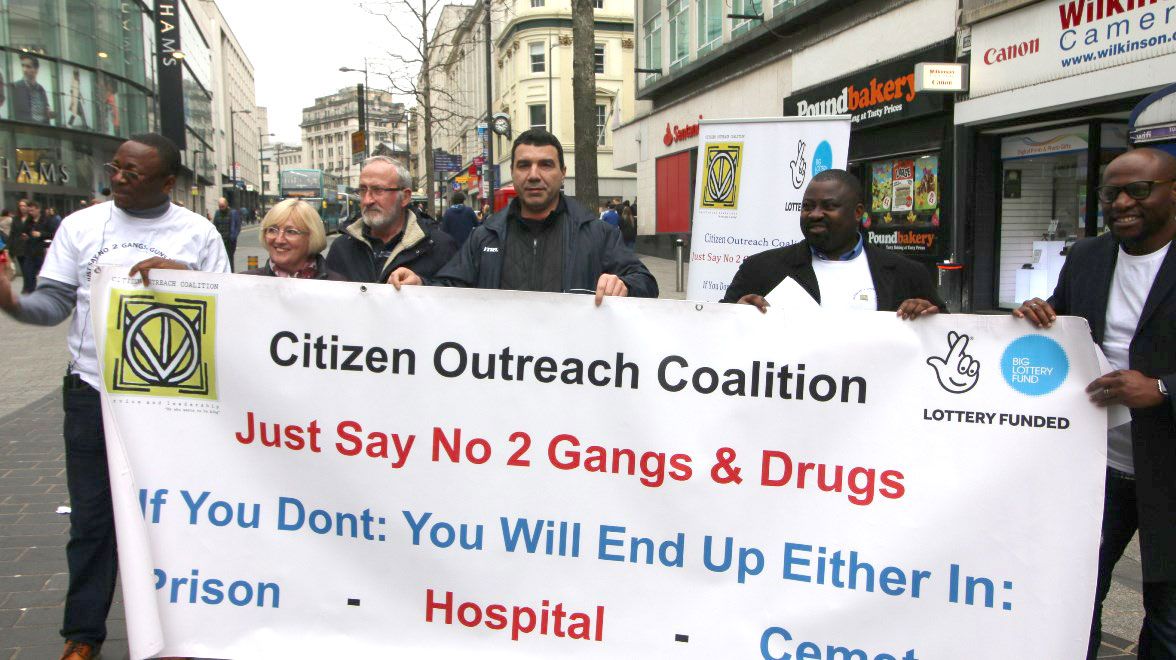
Drug & alcohol abuse
Some youth regularly use drugs or alcohol to compensate for anxiety, depression or lack of positive social skills.
It’s true that being a young person can be stressful and there can be a lot of pressure to fit in and it can be hard to just be yourself. Peer pressure is all around and it can be difficult to say no to bad habits. Turning to drugs and alcohol is detrimental to life. 1000 young people under age of 15 are admitted to hospital each year with acute poisoning. All need treatment but some die. Alcohol can affect all aspects of one’s life.
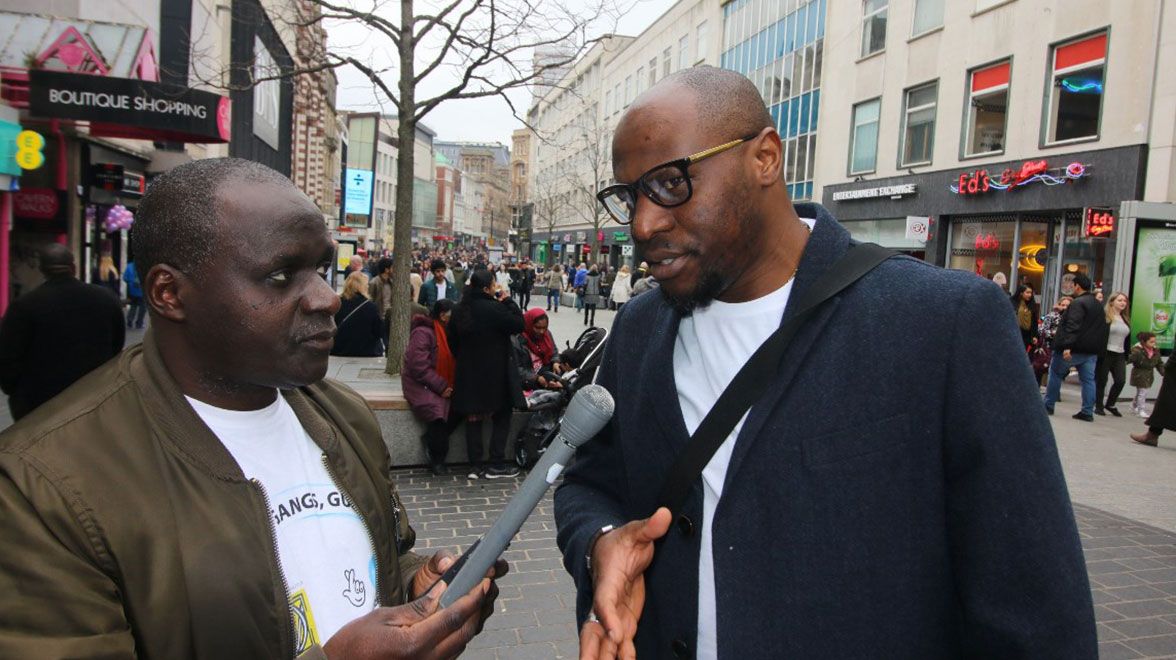
Knife & gang culture
Knife crime and bullying have become more common in youth society today. Self-defence is not a reasonable excuse for carrying a knife. Young people feel the need to carry knives because of various reasons; a feeling of safety, peer pressure – in order to fit in, gang culture, to look tough and show off, for misguided respect.
Unfortunately, it’s difficult to stop the supply of knives. There are far reaching consequences for everyone involved; loved one’s lost forever, prison sentences or community service, reputation lost and stigma for life.

Domestic Violence
Domestic violence is destructive for both the battered and batterer. It’s tendency to be passed down over generations makes it all the more important that we develop effective methods for combating abusive behaviour.
We carry out grass root campaigns to raise awareness of the vice in the community and engage in advocacy with law enforcement and local departments of social services.
Myths and challenges surrounding Covid-19 vaccines amongst African, Caribbean, Asian and other communities. But are these true? What you should Know! (Drs Judwin Ndzo (Paediatric Registrar, MD, MPH, MRCPCH) and Ganni Wele Wilfried (Medical Doctor)
Myths and challenges are not something new but during the session, our health professionals addressed and debunked some of these myths e.g. Microchips, infertility, changing DNA and amongst others by giving people the right information, including resources to help address such misinformation and misconceptions. This in turn did enhance public trust and confidence in the effectiveness and safety of the vaccine and discredited some of the myths that fuel our social media and public space.
Development, Evaluation, Approval and Monitoring – Pharmaceutical Regulation – EU, USA and WHO). Dr Ayuk Foma Mafomekong, MD, MSC, Drug Toxicologist / Drug Regulatory Consultant
Vaccine hesitancy has grown in part due to scepticisms surrounding the rapidity in which the Covid-19 vaccine development was fast-tracked globally. The concern in this case is not just on its safety and efficacy but also towards public health institutions and pharmaceutical companies. While the rapid development has had extraordinary achievements, challenges remain in the production, distribution, deployment and importantly acceptance.
Some of the challenges we found from our discussions surrounding vaccine hesitancy was lack of trust in the quality, safety and efficacy element; vaccine purity, ingredients, clinical trials & testing, approval and monitoring and scientific evaluation processes that were put in place by both developers and the regulatory bodies / authorities such as the European Medicines Agency (EMA) and other regulators in the EU / EEA countries.
That said, the webinar offered the opportunity for health practitioners to explain in some details vaccine discovery processes; the safety, efficacy and quality assurance elements, plus monitoring of side-effects, as well as the rigorous processes during manufacturing – development, evaluation, approval and monitoring – pharmaceutical regulations within the EU, USA and WHO.
(Dr Concilia Ajuo, Anaesthetic Nurse & Health Research Professional)
We know that vaccine hesitancy is complicated and influenced by a range of personal concerns, not least socio-economic inequity, but also safety and efficacy – probability of minor side effects and adverse reactions, as well as possible long term challenges. That is why our panellists provided credible arguments on the safety, efficacy and necessity of the covid-19 vaccines. Vaccine hesitancy and opposition sentiments amongst BAME communities is also shrouded by several myths, theories and misconceptions that swirl around some social media outlets, the internet, and in some public places.
In understanding the broader context of vaccine hesitancy, our first webinar series was set out to discuss extensively the socio-economic inequity and privilege factors, historical and political ideology, as reflective of the unique UK societal context. We discussed the impacts of poverty, socio- economic inequalities and instabilities; lack or insufficient educational access and quality, health inequity – health care access and quality, unemployment, and less affluent neighbourhoods.
All these factors from these discussions showed that the social and community context on racial disparities accounted in part for vaccine hesitancy, which highlights peculiarity especially amongst people from Black and Minority Ethnic (BAME) communities for being hesitant in taking the vaccine. Insight into these factors was necessary to set the ball rolling, drive engagement and improve convenience to proceeding sessions.
